Passenger Train Derails In Iran Killing 21, Several In Critical Condition
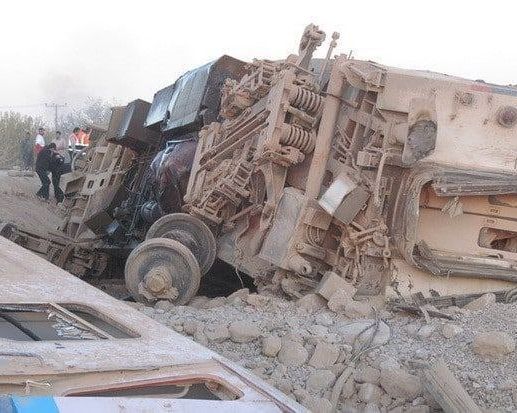
At least 21 people died when a passenger train derailed in eastern Iran on Wednesday, Fars news website reported, while 60 passengers were seriously injured.

At least 21 people died when a passenger train derailed in eastern Iran on Wednesday, Fars news website reported, while 60 passengers were seriously injured.
The head of the country’s emergency services said 15 injured passengers are in critical condition in hospitals in southern Khorassan province, according to ISNA. Other officials have put the number at around five people.
The train with 430 passengers and crew travelling to the city of Yazd collided at 5:30 am local time with an excavator before going off the rails 50 km (30 miles) from the city of Tabas, where it began its journey, a railway official told state news agency IRNA.
"Ten ambulances are at the accident scene and another 12 are on their way," the crisis management chief of the province of South Khorasan told the agency.
One reporter from Tehran tweeted that Iran has invested very little in maintaining and modernizing its rail system in the past 15 years.
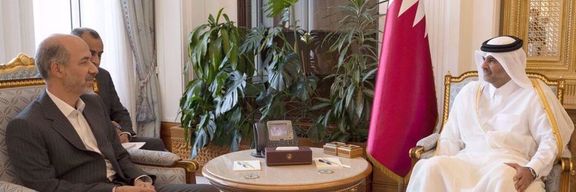
Iranian Energy Minister Ali Akbar Mehrabian says Qatar has issued a permit for the Islamic Republic to open a major trade center in the Persian Gulf country.
Mehrabian made the remarks from the Qatari capital Doha on Monday, adding that the Iran Trade Center will be launched in a prestigious building in one of Doha’s top neighborhoods.
“The permit for this center was issued today and one of the best buildings in central Doha, in a very good location, was allocated to the center,” he said.
An Iranian delegation headed by Mehrabian attended the eighth meeting of the Joint Commission for Economic Cooperation between Iran and Qatar in Doha on Monday, where the two countries signed a memorandum of understanding to increase bilateral economic and trade cooperation.
The document was signed by Sheikh Khalifa bin Jassim Al Thani, the chairman of Qatar’s Chamber of Commerce and Industry, and his Iranian counterpart Gholam Hossein Shafeie.

Head of Iran’s Trade Promotion Organization Alireza Peyman-Pak said during a meeting with Iranian businessmen in Doha on Tuesday that an exhibition will also be held in Iran to showcase Qatar's trade capabilities.
In May, The Emir of Qatar, Tamim bin Hamad Al Thani, expressed hope that an agreement between the United States and Iran could be achieved, saying Doha is ready to help resolve the conflict.
Qatar’s ruler visited Tehran a week earlier and held meetings with President Ebrahim Raisi and Supreme Leader Ali Khamenei.
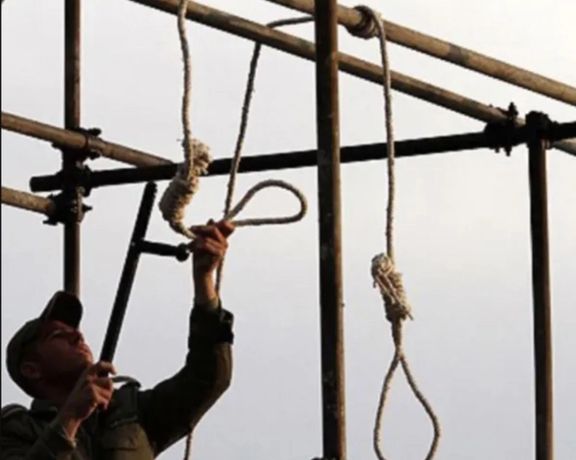
Human rights groups say the Islamic Republic hanged 12 Baluchis, including one woman, in Zahedan prison in the southeastern province of Sistan-Baluchestan on Monday.
According to a number of groups that monitor the human rights violations of ethnic minorities in Iran, all of the executed people were Baluchi, a minority people living in Iran’s south-east bordering Pakistan and Afghanistan.
Sistan-Baluchestan is the country’s second largest but least developed province. Sunni Muslim Baluchis, who make up the majority of the province’s population, allege discrimination, especially in government employment.
Late in May, the Norway-based Iran Human Rights (IHRNGO) said Iran’s judiciary has hanged at least 26 prisoners in various cities in 10 days amid a wave of popular protests across the country.
Calling for the abolition of the death penalty, Iran Human Rights Director, Mahmoud Amiri-Moghaddam said, “While most of those executed were charged with crimes such as murder and drug offences, the authorities use the death penalty as a political tool. The executions are carried out with the aim of suppressing dissent.”
Earlier in the month, Amnesty International’s annual report on worldwide use of the death penalty showed Iran as a country with a “disturbing spike” in executions.
The 66-page report found Iran executed at least 314 people in 2021, a 28 percent jump from at least 246 in 2020 and the highest figure since 2017. Amnesty said that in Iran “death sentences were disproportionately used against members of ethnic minorities.”
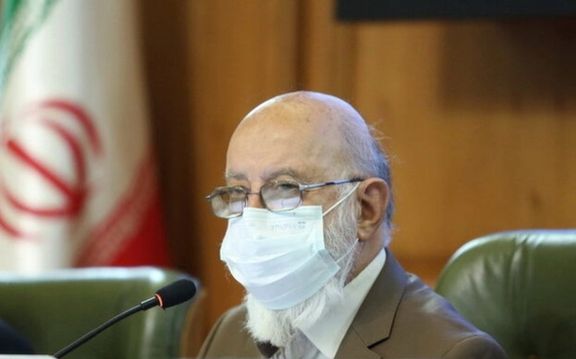
The chairman of Tehran’s city council says that last week cyberattack was carried out by Mossad, the Mujahedin-e-Khalq (MEK), and all forces against the Islamic revolution.
Mehdi Chamran made the remarks on Tuesday in reference to the Thursday attack that deactivated over 5,000 surveillance cameras and 150 websites and online services of Tehran Municipality. An Iranian hacktivist group named ‘Uprising till Overthrow' took responsibilty.
“Detailed planning was carried out by the Mossad and the “hypocrites” and the cooperation of the two with all the counterrevolutionaries and those who oppose the Islamic Republic,” he said. Iranian officials always refer to the exiled MEK as 'hypocrites'.
His comments came as most of the services are still offline and the authorities have warned all municipal employees against turning on their systems, suggesting that the municipality has not yet figured out how their systems were breached.
During the same session, Asghar Ghaemi, a member of the Council, said, "We should apologize to the people of Tehran for this cyberattack,” expressing hope that the damages to the municipality will be compensated and services will be back online.
The hacktivist group, reportedly affiliated with the MEK, put photos of the leaders of the group Massoud and Maryam Rajavi as well as insults at Khomeini, Supreme Leader Ali Khamenei, and President Ebrahim Raisi on the websites of Tehran Municipality. The MEK released a video clip showing the websites defaced with a graphic with an image of Khamenei with a red 'X' over his face, while calling for an “uprising until overthrow.”
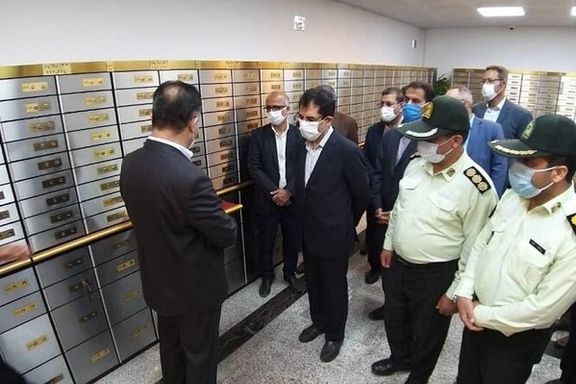
State media has played down a bank heist that saw thieves break into at least 200 safety deposit boxes in a central Tehran branch of Iran’s largest bank.
Bank Melli (National Bank), which is state-owned, issued a statement Monday saying thieves had entered its branch near the University of Tehran and accessed fewer than 200 safety deposit boxes.
The bank is about half a mile from the headquarters and residence of Supreme Leaser Ali Khamenei.
Iran was in a four-day holiday from Thursday to Sunday marking the death anniversary of Ayatollah Ruhollah Khomeini, founder of the Islamic Republic. Apparently, the robbers gained access from an adjacent building during the holiday, and it is not clear how long they were inside.
Officials said an investigation was underway, with several bank employees “under observation” for possible “dereliction of duty.”
The gall of the robbers has fed social media speculation, and even comparisons with famous bank robberies elsewhere in the world, like the 1983 Brink’s Mat heist in the United Kingdom. Bank Melli denied social media reports that 1,000 boxes had been breached and referred simply to an “incident” in a press release.
Most state media avoided lengthy reports while also denying that as many as 1,000 boxes had been breached. State broadcaster IRIB put the number of safety deposit boxes opened at 250, while others used the phrase ‘damaged boxes.’
Inside job?
IRIB said that the thieves appeared to have been familiar with the bank’s interior and had stolen the main device recording footage from surveillance cameras. IRIB revealed that the bank’s alarm was not connected to the police and had only sent a text message to the branch manager, who ignored it as the system had been prone to false alerts.
The robbery is seen by some as an ‘inside job,’ and by others as another example of official ineptitude following the collapse of a high-rise building May 23 in Abadan, a refinery city in the oil-rich Khuzestan province, which killed at least 40 people and is widely seen as the result of officials ignoring warnings from engineers in allowing the owner to add five more floors. The disaster led to anti-government protests in the province and elsewhere.
As 80 percent of the economy is controlled by the government, including the banking sector, ordinary people often see such incidents as the result of inefficiency, personal and political nepotism and in some instances corruption.
Media and officials in Tehran say it is not clear what the bank robbers stole from the safety deposit boxes, since banks have no information about what people put in these boxes, which are used to safely store personal mementoes, precious foreign currency, and gold coins bought as a hedge against inflation.
It is also not clear if there is any kind of insurance covering losses sustained by customers. One report last year suggested Iranians were keeping $25-$30 billion in cash “at home,” which would include money in bank deposit boxes.
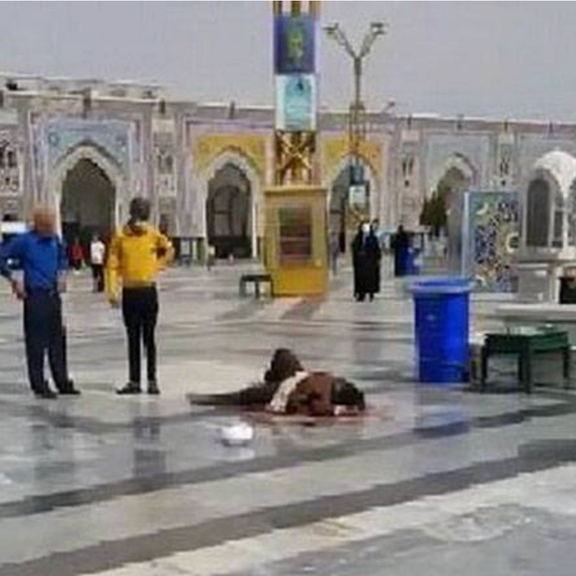
A court in Iran has sentenced a man to death for killing two clerics and wounding a third in a knife attack at a holy Shi'ite Muslim shrine in April, the judiciary said on Tuesday.
"The revolutionary court sentenced him to death ... and his lawyer has appealed. The case has been sent to the Supreme Court," judiciary spokesperson Masoud Setayeshi told a news conference carried live on a state-run website.
Officials said the attacker was Abdullatif Moradi, a 21-year-old ethnic Uzbek from Afghanistan with radical Sunni views. He was arrested after the stabbings at Iran's largest Shi'ite Muslim religious complex in the northeastern city of Mashhad.
Top officials and clerics had reacted strongly to the incident and called for a speedy trial in the case.
Attacks on clerics and government officials have been rare in Iran after authorities tightened security measures and cracked down on opposition groups following a string of attacks and bombings that killed dozens of officials and clerics following the 1979 Islamic revolution.
However, a senior conservative cleric was slightly hurt after being attacked by a man with a knife after Friday prayers last week in the central city of Isfahan.
There have been weeks of unrest in Iran after a jump in food prices and amid public anger with government leaders and powerful clerics over a deadly building collapse last month that was widely blamed on corruption and lax safety measures.
With reporting by Reuters